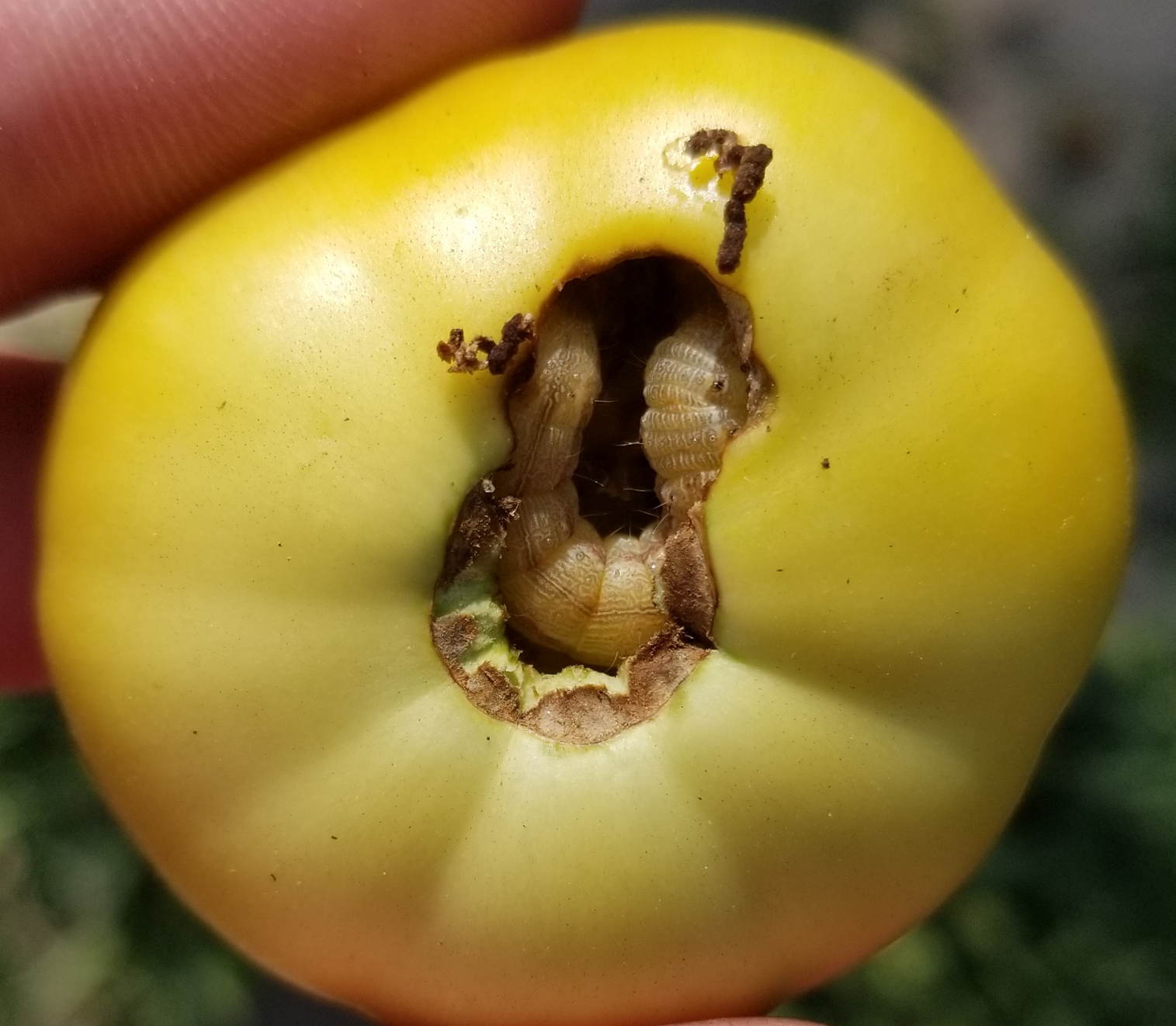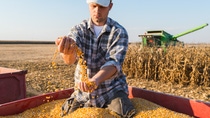Agriculture
Impact of Agriculture on People and the Environment – Our Positions
While modern agriculture is essential to ensuring food security for a growing population, there are also increasing concerns regarding the potential impact of agriculture on people and the environment when not done responsibly. We understand that there are risks involved that require ongoing improvement of outcomes within our value chain as well as in the sector as a whole.
We want a future of agriculture that benefits everyone, everywhere. We are committed to creating such a future, and we also recognize that this future can’t be reached without open and honest dialog about the challenges and solutions. Therefore, we encourage a continued exchange on topics of concern. What is food security and how can we support in finding the right solutions? How can we minimize the impact of crop protection products on pollinators? Why do we think that banning exports of products not registered in the EU does not help those it is intended to protect? We invite everyone to find out our position on some of the most pressing topics.
We take our social responsibility very seriously, and we don’t want any of our products to cause harm anywhere in the world. We care passionately about food, agriculture, the environment, our employees and our contribution to the world, for future generations.
Necessity of crop protection and food security
We know that there is increasing concern about the production, sale, and use of certain crop protection products in global food production. While we agree that misuse may create risks to people and the environment, we also think that simply rejecting them generally without fully understanding the potential impact on food security is a major risk – considering the estimated 713 to 757 million people in the world facing hunger. We strongly support a more nuanced approach that understands the problems and solutions.

The challenge of food security
Globally, 30% to 40% of crops are lost each year to weed competition, pests and plant diseases (Food and Agriculture Organization of the United Nations FAO). Independent sources say that it would be twice as much without crop protection (OECD/FAO). Our view is that our products support farmers to protect their crops from pests and diseases, therefore enabling them to safeguard yields that people need for nutrition. This will be increasingly important in the future, with the world’s population expected to grow to approximately 10 billion people in 2050. Therefore, agricultural production must be increased by 50% over the next 20-30 years according to the FAO (FAO: compared to 2013).
At the same time, the amount of arable land is limited and continuously decreasing. To avoid crops being lost through pests or diseases, farmers count on products and services that help them produce better qualities and quantities of crops on their land, thus also protecting natural resources.

Innovating to accelerate agriculture’s transformation
Innovation has never been more important than now, when farmers and agriculture are facing ever more complex challenges. We see these challenges as opportunities. We are one of the leading agricultural companies, aiming to make a positive impact on the global food system and help shape a sustainable future of farming: Supporting farmers with innovations and connected offers that combine effective products, new technologies and services, including seeds, crop protection, digital tools and more, which are tailored to different key crop systems around the world.
Reducing unwanted side effects of agrochemicals
- While crop protection products play an important role in ensuring food security, some substances may have the potential to have unwanted side effects which need to be understood and managed through effective research, development, innovation, regulation and stewardship. We recognize that these side effects may cause concerns and we are committed to addressing them proactively.
- We value the health and safety of people above all else and make sustainability part of every decision. We also want the food we buy for ourselves and our families to be safe and healthy, so we are committed to strict standards to ensure this. Our crop protection products are developed with utmost care and assessed both by us and by external, independent authorities. We actively steer our current portfolio and develop our future offer towards more sustainable solutions (Sustainable Solution Steering, “Triple S”).
- In addition to regulatory requirements and approvals, we also develop farther-reaching, product-specific stewardship measures and trainings on a case-by-case basis, focusing on further minimizing risks to both the user and the environment.
- An example of our commitment to solving industry dilemmas is easyconnect, developed in response to a key challenge in agriculture: ensuring the safe and efficient handling of crop protection products by the farmer, while minimizing environmental risks. Traditional methods often led to spillage and exposure, posing risks to both users and the environment. To address this, easyconnect, a closed transfer system (CTS), ensures safe, fast, and easy handling. Supported by all CropLife Europe agrochemical manufacturers, easyconnect is currently being introduced in The Netherlands, Belgium, France, Germany, and the UK, with further European countries to follow. This innovation is a sustainable solution, enhancing worker safety and reducing environmental impact.
The food we eat is safe

What are residues in food?
Crop protection products are designed to protect crops from diseases, pests and weeds. After harvesting however, residues – which are small amounts of crop protection products – can sometimes remain in or on the surface of a food item.
This may sound alarming. It is important to understand though that finding residues in imported or domestic food products does not automatically mean that this food item poses a risk to us consumers. Fortunately, food safety today is arguably the best it has ever been.
In the context of the approval of plant protection products, the safety for consumers is assessed in terms of the residues that have occurred and the average and maximum eating habits. Amounts eaten by consumers on a single day, raw or via processed products and on every day must be safe – when compared to the crop protection product specific health-based guidance values. Even if, for example, apples would contain the highest observed amount of residues, only then will the crop protection product receive approval for use.
We firmly believe that all consumers should have access to safe, affordable, quality food which is why we provide farmers globally with tools to protect their crops and provide this wide choice of safe food to consumers.
How are MRLs set?
In cases where we observed residues from an intended use, the maximum to be expected residue from this intended use is derived for each crop protection product / food combination and called Maximum Residue Levels (MRLs). This MRL is then set at country or regional level. If residues do eventually appear in food, they are almost always within the expected range, i.e. below the specified MRL and in most cases far below the MRL.
It may be interesting to know that the usual quantification limit for crop protection residues is 0.01 mg of crop protection product per kg of food. As it is very difficult to imagine this 100-million dimension, here are a few examples: This would be like 1 grain of wheat per 5 tons of wheat, or 1 cent out of 1 million euros, or 1 second in 38 months, or 1 dissolved sugar cube in an Olympic size swimming pool.
In order to comply with maximum residue levels, farmers must apply crop protection products correctly. If incorrect use leads to higher residues than the domestic MRL allows, the food product cannot be placed on the market. When food is traded internationally, the MRL of the importing country needs to be respected.
If the authorities detect exceedances of the MRLs permitted, this shows on the one hand that the food monitoring system is working; but on the other hand, that further efforts are still needed to promote the correct and safe use of plant protection products and understanding the rules of trade.
We have been working for years to keep residues in food as low as possible, regardless of whether it is produced and sold on domestic markets or imported from other countries. To this end, various units work closely together to make the best recommendation for our customers.
Bees and pollinators health

Ensuring adequate agricultural production to feed a growing population is an integral part of BASF’s vision for sustainable agriculture and environmental stewardship. Bees and other pollinators play a crucial role in this process, and it is essential that crop protection products support this role rather than being at odds with it. According to the FAO, over 75 percent of the world’s food crops depend on pollination from animal pollinators including bees, making reports of declines of bees and other pollinators and insects a major concern. Drivers of pollinator decline are complex, and misuse of pesticides is only one of the contributing factors.
While we are convinced of the safety of the products we sell when used according to label instructions, misuse cannot be completely excluded. We support immediate action to implement evidence-based measures to protect and enhance pollinators alongside food yield, which is why we have specific product stewardship guidelines to prevent harm to bees and other pollinators.
We are also working towards better understanding and resolving the barriers to farmers implementing pollinator-friendly practices on farm within a pilot project in Brazil with an aim to create a world-first nature-based market.
Our crop protection products undergo many years of extensive and stringent testing to ensure that there are no adverse impacts to the environment, including bees. Tests must meet regulatory standards, and authorities carefully evaluate the results and the impact on the environment before they approve a product to be marketed.
Risk mitigation measures are applied for the safe use of crop protection products and product registrations may impose their mandatory use. Depending on the circumstances of the individual case, these measures can include for example:
- buffer zones between treated and natural areas
- use of specific tools to minimize spray drift to adjacent areas
- use of special machinery for treated seeds to minimize product abrasion and dust drift
- restricted application times (e.g., apply only when bees are not actively foraging)
Going beyond regulatory requirements, we have also defined and implemented product stewardship measures, which contribute to the protection of bees (e.g. training and correct application technology). As example for a stewardship activity, see this e-learning tool: Pollinator Protection (basf.de)
Highly Hazardous Pesticides (HHPs)

What is an HHP, and why does BASF sell them?
“Highly Hazardous Pesticides” (HHPs) is a term for crop protection products recognized for their high potential to cause adverse effects on human health or the environment. The most often used criteria for HHPs are established by several credible international organizations - the Food and Agriculture Organization (FAO) and the World Health Organization (WHO).
We know there are concerns related to the production and sale of HHPs, and that the idea that plant protection products that are considered “highly hazardous” can still be used safely raises questions.
Definitions of HHPs vary based on different approaches. We adhere to the International Code of Conduct on Pesticide Management, and the official FAO/WHO guidelines on highly hazardous pesticides when managing HHPs in our portfolio. There are multiple measures to prevent and reduce risk, such as a solid risk management, responsible handling and limiting unnecessary exposure. We take our responsibility very seriously, and support the notion that if the risk of use of products is unacceptable and cannot be mitigated under local conditions, such products should not be used and withdrawn from the respective market.
While there are certain hazards associated with some products in our portfolio, they are an important tool for farmers who sometimes have no other options to produce the necessary amount of food, feed and fiber. We support a risk-based and balanced approach that considers the overall likelihood of harm as well as regional differences and necessities.
We will only continue to commercialize our registered HHP products when we are convinced that they can be applied safely and effectively in real-world settings. Following this approach, we regularly review our portfolio focusing on HHPs to identify those cases where local risk management is needed and implement respective measures. For example, giving safety and use instructions via label language, additional education and trainings of farmers on the responsible use of plant protection products or the provision of personal protective equipment.
Should HHPs be completely banned?
We understand society’s desire to reduce dependence on crop protection products, especially those considered HHPs. The crucial question is how this is to be achieved. Innovations can certainly make a valuable contribution in this direction. We target the development of biological and chemical crop protection products with more sustainable profiles and to offer digital technologies to make their use even more precise and efficient while protecting farmers and natural resources.
From our point of view, targets for dealing with HHPs should be evidence-based, proportionate and realistic with regard to the objective of reducing the risk and use of HHPs while ensuring food security. It is important to consider the availability of alternatives and to address individual country-specific agricultural environments. Instead of a broad and unbalanced ban of all HHPs, we believe that the best outcomes for people and the environment are to be achieved, wherever possible, through risk management and high standards for the responsible use of crop protection products.
This concept is in line with the internationally agreed approach to HHP management which was initiated by the UN environment program and adopted in 2023 (Target A7 of the new Global Framework on Chemicals). It states that “by 2035, stakeholders [will] have taken effective measures to phase out highly hazardous pesticides in agriculture where the risks have not been managed and where safer and affordable alternatives are available, and to promote transition to and make available those alternatives.“
Export of products not registered in the EU

Why do we sell crop protection products that are not registered in the European Union to countries in the Global South?
We understand there are some concerns about reports that we are still producing products that are not (or no longer) registered in the EU and selling them into other markets, including countries in the Global South (e.g., Brazil, India, African countries). At first glance, people may perceive this as a double-standard and would see the ban of exports as a solution.
We take our social responsibility very seriously, and we do not want any of our products to cause harm, regardless of where in the world that harm might occur. In coming to conclusions about risk, we support a risk-based approach that considers the overall likelihood of harm, as well as considering regional differences and requirements. While we support the notion that if the local risk of a product is unacceptable, that product should be withdrawn from the market, we do not think that banning production and sale of all products that are not registered in the EU is an appropriate solution.
Our view is that despite not being registered currently in the EU, these products can be used safely in other markets. While we have proactively removed products based on active substances that belong to WHO Classes 1A and 1B, we still have products in our portfolio that contain active ingredients that are not registered in the EU and sold in other countries if they meet local legislation and the requirements of the international Code of Conduct of the WHO and the FAO on pesticide management.
There are several reasons why certain products are still registered and approved in other markets:
1) Different climate and diseases require different solutions:
Agricultural needs are local and for many products there is simply no reason for manufacturers to seek approval in Europe, as for example crops such as coffee, and pests vary from region to region. Therefore, these products are needed in other countries to protect these crops from harmful diseases, weeds and pests.
2) Compared to other regions, the EU is using a different approach to approve active ingredients:
In general, the EU is following a more ‘hazard-based’ approach when evaluating active ingredients. While other jurisdictions, including many OECD countries like Australia, Canada, Japan and the USA, take a ‘risk-based’ approach. The latter considers the hazard of the substance, the exposure and any mitigation measures, compared to the EU approach which focuses mainly on the hazard.
Our assessment of the products we sell aligns to that of the many authorities which have approved them: while they may be hazardous, they can be used safely in real-world settings by taking appropriate steps to reduce exposure. This could be compared to something like driving a car where the risks are addressed by licensing, training, car maintenance, traffic rules, and safety equipment.
3) Food security in different countries requires different products and specific training measures:
We believe that the best outcomes for people and the environment are most likely to be achieved by promoting and enforcing high standards for the safe use of crop protection products. These should apply everywhere, including and especially in countries of the Global South. We recognize that we have an important role to play in ensuring that our products do not cause harm. We actively work to achieve this, for example by providing training and protective equipment.
We are convinced of the safety of our products when they are used correctly following the label instructions and stewardship guidelines. As an additional safety layer, we voluntarily assess all uses of products having potential health risks and only support them when the assessments confirm farmer safety under conditions of local use.
Our employees live and work in the countries where we sell our products, and they are out in the fields with the local farmers. We take our commitment to product stewardship very seriously and offer a wide range of education and training on the safe storage and use of our products.
Organic versus conventional farming

Given the dilemmas faced around providing safe and healthy food to a growing population while protecting our increasingly fragile planet, we understand that some people are seeing a shift to organic agriculture as a natural solution. We agree that a right balance is needed to produce the right amount of food on limited arable land in a way that minimizes impacts on people and the environment, but we also believe that safe use of conventional crop protection products will continue to play a significant role.
Organic agriculture serves a successful niche market, and the crop protection industry supports its development in the EU. However, it is acknowledged that organic production methods alone do not have the capacity to satisfy global food demand. Conventional farming can feed more people per hectare due to its higher productivity, which in turn can prevent land use change, e.g., deforestation, and protect natural habitats.
We believe that there is space for both technologies, conventional and organic, to co-exist. Our BioSolutions portfolio portfolio includes a number of products covering fungicides, insecticides, nematicides and inoculants. They can complement chemical treatments within smart Integrated Pest Management (IPM) programs. A good balance of using both, conventional and biological technologies, will help farmers to produce enough healthy food to feed a growing population while addressing societal expectations and consumer needs.
Our view is that safe and proper use of crop protection products aligns to sustainable agricultural practices. Organizations like the WHO and FAO agree on the critical role of crop protection products in food production and security, while also recognizing the need for responsible management to minimize potential health and environmental risks.



